Reports suggest that 60–80% of visits to primary care are stress-related. 44% of Americans report an increase in psychological stress over the past five years according to one publication by the American Psychological Association.1 It should come as no surprise that supporting HPA axis homeostasis and addressing stress response is a significant clinical goal and one which requires differing HPA axis optimization supplement recommendations for different stages and to meet individual need.
Stages of HPA Axis Optimization
The foundational strategy of HPA axis optimization involves effective detection of axis activation and attendant impact on cortisol, followed by an appropriately-designed lifestyle and dietary supplement regimen. Nutritional supplements used for HPA axis optimization should support the health and well-being of individuals in various stress response stages, and should be flexible and individualized.*
The ability to respond to stress has the potential to interfere with the enjoyment of life and even the ability to perform ordinary daily activities. A regimen that incorporates lifestyle, dietary, and behavioral recommendations alongside nutritional supplementation is ideal in supporting healthy HPA axis function and reaching the ultimate goal of improving an individual’s ability to respond and adapt to stressful stimuli, while promoting energy recovery and restorative sleep.*
Supplements for HPA Axis Optimization: Early Stage
Individuals in this stage can benefit from supplementation with herbs and nutrients that calm HPA axis activation, support healthy cortisol balance, and help relieve occasional anxiety and stress.*
Ashwagandha (Withania somnifera) has been shown in clinical studes to reduce stress and occasional anxiety in adults.*3,4 A literature review demonstrated that ashwagandha exerts "positive influence on the endocrine, cardiopulmonary, and central nervous systems."*5 Therapeutic dosage is in the range of 200-400 mg daily
L-Theanine, an amino acid, has been shown to inhibit cortical neuron excitation and reduce sympathetic response in times of high stress, thereby creating feelings of calm, supporting blood pressure already with normal limits, and improving mood.*6,7 It promotes feelings of relaxation without diminishing daytime alertness.* Recommended dosage is 100-300 mg, two to three times daily.
Supplements for HPA Axis Optimization: Mid Stage
Individuals in the mid-stage of the stress response can benefit from adaptogens, which are botanical ingredients that support the body's ability to respond to stress and restore homeostasis.* THis may, in turn, influence mood, cognition, and energy levels.*
Rhodiola (Rhodiola rosea)8 A daily dosage of 200-400 mg is recommended.
Eleuthero (Eleuthero senticosus) supports adrenal function, regulates neurotransmitters, and may increase resistance to stress.*9 Recommended dosage is at least 150-300mg per day.
Supplements for HPA Axis Optimization: Late Stage
In the late-stage, individuals can benefit from adrenal-supportive nutrients and botanicals to support healthy cortisol production.* Fortifying the diet with essential vitamins that can be depleted by stress is also important in maintaining adrenal cortex function, combatting occasional stress-related fatigue, and promoting energy recovery.*
Sufficient quality sleep is vital to overall health and well-being. Sleep plays a modest but important role in modulating HPA axis activity by inhibiting cortisol secretion as part of the daily rhythm that controls sleep and wakefulness. Supporting sleep efficiency and the daily cycle of cortisol secretion may positively influence daytime performance and a normal stress response.*10
Vitamin B5 (pantothenic acid) is involved in numerous biological reactions, including the production of energy and the synthesis of steroid hormones, including cortisol.*11 Vitamin B5 is required for normal function of the adrenal cortex.*12 A daily dosage of 150-300 mg per day is recommended.
Licorice (Glycyrrhiza glabra) root extracts have been shown to influence cortisol production in both animals and humans by inhibiting 11beta-hydroxysteroid dehydrogenase, the enzyme responsible for converting cortisol to cortisone.*13,14,15 In one study, supplementing with licorice extract increased saliva cortisol levels in healthy women.*16 A dosage range of 150-200 mg per day is recommended.
5-HTP (L-5-Hydroxytryptophan) is a serotonin precursor that supports sleep regulation.*17 In a small double-blind trial, supplementation with 5-HTP increased rapid-eye-movement (REM) sleep, which may suggest improved sleep quality.*18 A dosage of 100 mg taken 30 minutes before bedtime is recommended.
REFERENCES
- American Psychological Association. 2012. Washington, DC: American Psychological Association; 2012. from:http://www.apa.org/news/press/releases/stress/2011/final-2011.pdf.
- Avey H et al. J Natl Med Assoc. 2003 Sep;95(9):833, 836–45.
- Chandrasekhar K et al. Indian J Psychological Med. 2012;34(3):255–62.
- Andrade C et al. Indian J Psychiatry. 2000 Jul;42(3):295–301.
- Mishra LC et al. Altern Med Rev. 2000;5(4):334–46.
- Yoto A et al. Journal of Physiological Anthropology. 2013;31:28.
- Kimura K et al. Biological Psychology. 2006.
- Edwards D et al.Phytother Res. 2012 Aug;26(8):1220–5.
- Gaffney BT et al. Life Sci. 2001 Dec 14;70(4):431–42.
- Hudson T et al. Natural Med J. 2010;2(6). Retrieved on April 11, 2017 from http://www.naturalmedicinejournal.com/journal/2010-06/role-cortisol-sleep.
- Tahiliani AG et al. VitamHorm. 1991;46:165–228.
- Jaroenporn S et al. Biol Pharm Bull. 2008;31(6):1205–8.
- Asl MN et al.Phytother Res. 2008;22(6):709–24.
- Isbrucker RA et al.RegulToxicolPharmacol. 2006;46(3):167–92.
- Methlie P et al. Eur J Endocrinol. 2011;165(5):761–9.
- Al-Dujaili EA et al. Mol Cell Endrocrinol. 2011;336(1–2):102–9.
- Birdsall TC et al. Altern Med Rev. 1998;3(4):271–80.
- Wyatt RJ et al.Electroencephalogr Clin Neurophysiol. 1971;30:505

